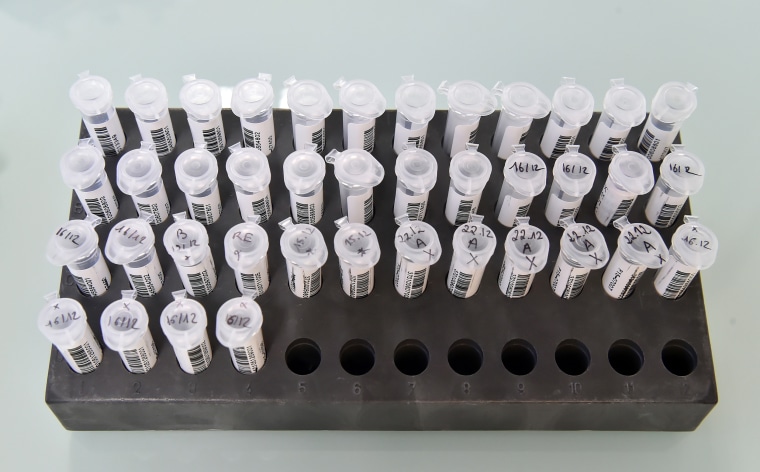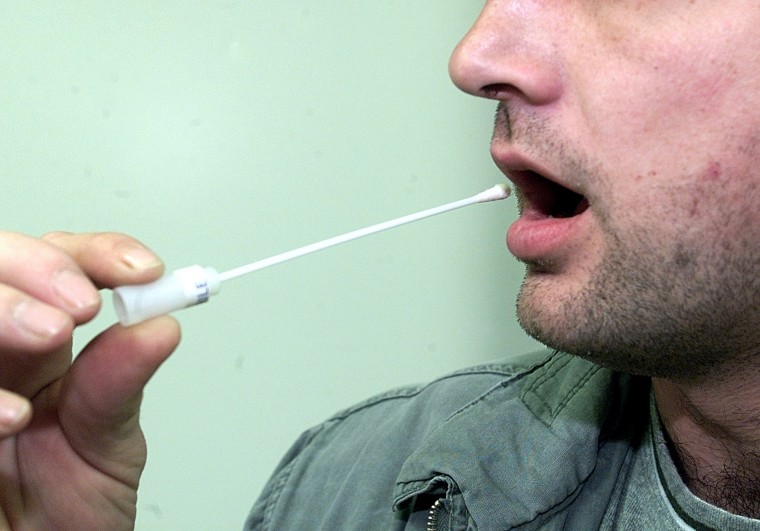Despite the country’s focus on the American Health Care Act, a smaller bill is also working its way through Congress — one that could overturn years of legislative protections for patients.
This bill would potentially pressure patients to submit to genetic testing as part of worker wellness programs, with the goal of better assessing someone’s health risk profile. If a person doesn’t agree to the tests — employers or health insurance companies could jack up their health insurance costs.
If the new bill passes, here's what you need to know:
You could pay more or be denied coverage
The 2010 Affordable Care Act gave employers the option to entice workers with financial incentives to engage in voluntary health screening and wellness programs. In exchange for participating in programs — such as weight loss or smoking cessation classes, regular cholesterol screenings, or providing answers to detailed health questionnaires — employees could see their premiums be reduced by 30 percent to 50 percent.
Related: 5 Things to Know About the CBO Report on Ryancare
However, a prior 2008 law, the Genetic Information Non Discrimination Act or “GINA”, which was signed by President George W. Bush, prohibited health insurers and employers from forcing people to submit to genetic testing or to use the tests to discriminate. Notably, it prevented employers from using the information to make employment decisions. Insurers could not use genetic tests to deny coverage or charge higher premiums.
At the time, Sen. Ted Kennedy called GINA the “first major civil rights bill of the new century.”
Today’s new GOP sponsored bill, HR 1313, introduced by Rep. Virginia Foxx (R-NC) and referred to as the "Preserving Employee Wellness Programs Act", would remove a lot of these prior protections. The bill circumvents worker genetic privacy by saying that as long as the collection of "information about the manifested disease or disorder" is part of "a workplace wellness program offered by an employer or in conjunction with an employer-sponsored health plan", it doesn't violate GINA.

Furthermore, employers would be able to access these results as long as they were linked to a wellness program. Results from a family member could potentially affect others who share a genetic relationship.
“When it comes to genetic health, it ought to be nobody’s business," Art Caplan, a professor of bioethics at New York University’s Langone Medical center told NBC News.
It's not only about you
Employers may be allowed to offer substantial health insurance premium rebates to workers who took part in wellness programs, which force employees to submit to health risk assessments, including genetic screening. Those who don’t opt into the program or the testing would be forced to pay a hefty financial penalty.
The bill also weakens the ability of the Equal Employment and Opportunity Commission in overseeing wellness programs and preventing violations of anti-discrimination laws.
"This is ethically very wrong," said Caplan. "This is sensitive information that not only reveals important information about you, but also about your siblings and kids."
Nearly 70 organizations — including the AARP, the American Diabetes Association, the American Academy of Pediatrics, and the March of Dimes — wrote a letter to Rep. Foxx last week stating that the bill fundamentally undermined basic patient protections.
Genetic test are faulty crystal balls
Genetic tests have a controversial role in medical care — they're faulty crystal balls fraught with results that have limited predictive value, are difficult to interpret, and can lead to damaging decisions by patients and providers.
If a test comes up positive that does not mean a person necessarily has a disease, according to the American Cancer Society. Similarly, a negative result doesn’t mean a patient has no risk of getting a disease. Genetic testing may also be flawed, with different laboratories having different interpretations.
A notable scandal was the Ovasure test, the subject of a 2011 JAMA study at the University of Utah. Not only did the genetic test not reduce ovarian cancer mortality, but it also led many women to have unnecessary biopsies or surgeries, which included serious complications or death.
Furthermore, doctors do not always follow the correct guidelines when explaining a test to patients. In this case, how would a result be communicated to an employee?
Related: Half of Cancer Deaths Due to Bad Habits
Wellness programs have limited impact
Wellness programs have grown into a $6 billion industry. Despite their popularity, a recent study by the RAND institute found wellness programs have limited, if any, impact on patient outcomes: they didn't result in a reduction in total cholesterol levels; only helped short-term smoking cessation; and provided statistically insignificant cost savings or less use of emergency department care.
It may be lumped into health care act
So far the bill has only been narrowly passed by a single committee in Congress, on a party line vote, and is still making its way through the House of Representatives. It has yet to be considered in the Senate. It could also be lumped into a later version of the GOP-backed health care plan.
Anthony Serritella is a medical fellow with NBC News. He is currently a medical student at the Johns Hopkins School of Medicine.
